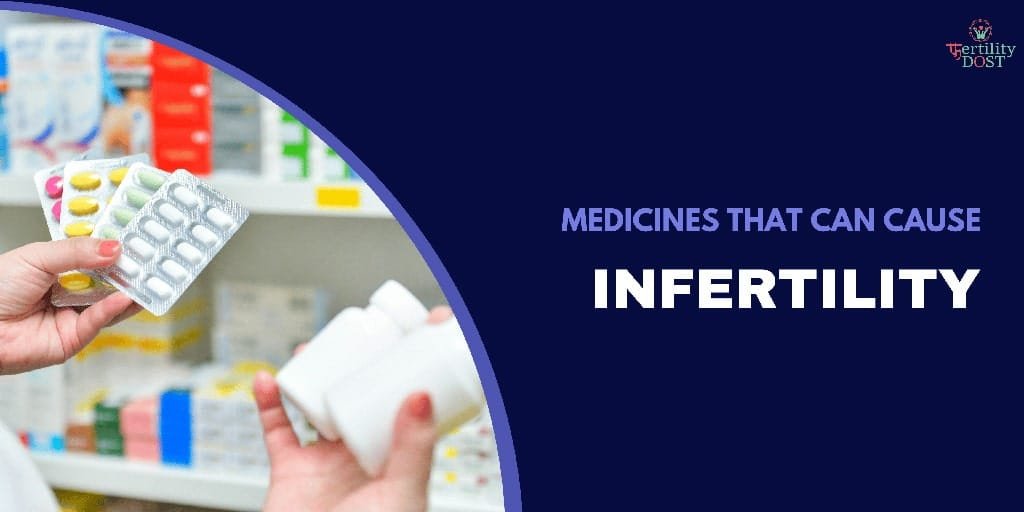9 Everyday Items That Could Be Harmful to Your Fertility
Fertility, Fertility Diet, Infertility
When you’re trying to conceive, you may be doing all the right things—eating healthy, exercising, and taking prenatal vitamins. But what if I told you that some everyday items in your home might be working against you? Many common products we use without a second thought contain chemicals that can disrupt hormones, harm reproductive health, and impact your chances of getting pregnant. Let’s uncover nine of these sneaky culprits and learn what you can use instead to protect your fertility.
Signs You May Be Affected by Environmental Toxins
If you’re experiencing the following symptoms, environmental toxins might be a contributing factor:
• Irregular menstrual cycles or hormonal imbalances.
• Difficulty conceiving or a history of miscarriages.
• Low sperm count or poor sperm motility.
• Unexplained fertility issues that do not respond to traditional treatments.
9 Everyday Items That Could Be Harmful to Your Fertility
1. Plastic Food Containers
Most plastic containers, especially those not labeled BPA-free, can leach harmful chemicals like BPA and phthalates into your food, which can disrupt hormone levels and affect fertility.
Replace With: Glass or stainless steel containers for food storage and preparation.
2. Non-Stick Cookware
Non-stick pans often contain perfluorinated chemicals (PFCs), which have been linked to reduced fertility and hormone disruption.
Replace With: Stainless steel, cast iron, or ceramic cookware, which are safer and equally effective.
3. Scented Candles and Air Fresheners
These products often contain phthalates and volatile organic compounds (VOCs), which can negatively impact hormonal health and fertility.
Replace With:Natural alternatives like beeswax candles or essential oil diffusers.
4. Conventional Cleaning Products
Many conventional cleaning agents contain harmful chemicals like ammonia, chlorine, and phthalates, which can affect reproductive health.
Replace With:Homemade or eco-friendly cleaners using ingredients like vinegar, baking soda, and lemon.
5. Synthetic Beauty and Personal Care Products
Shampoos, lotions, and makeup often contain parabens, phthalates, and other endocrine disruptors that can impact fertility.
Replace With: Natural or organic beauty products free from harmful chemicals.
6. Chemical Sunscreens
Many sunscreens contain oxybenzone and other chemicals that can penetrate the skin and interfere with hormone function.
Replace With: Mineral-based sunscreens containing zinc oxide or titanium dioxide.
7. Processed and Packaged Foods
Processed foods often contain preservatives, artificial colors, and additives that may affect fertility by creating oxidative stress in the body.
Replace With:Fresh, whole foods, and organic options whenever possible.
8. Receipts (Thermal Paper)
Most receipts are printed on thermal paper coated with BPA, a known endocrine disruptor that can be absorbed through the skin.
Replace With: Opt for digital receipts or minimize handling by storing them separately if necessary.
9. Teflon-coated Dental Floss
Some dental floss brands use Teflon or other perfluorinated chemicals that have been linked to reproductive harm.
Replace With: Waxed, natural, or biodegradable dental floss.

Detox Your Life and Improve Fertility
Now that we understand how environmental toxins affect fertility, let’s explore practical ways to reduce exposure and detoxify your life:
1. Detox Your Diet: Eat Organic and Avoid Processed Foods
• Choose Organic: Organic fruits and vegetables are grown without harmful pesticides. Eating organic helps reduce exposure to endocrine disruptors.
• Limit Processed Foods: Processed foods often contain additives and preservatives that may contain toxic substances.
• Increase Antioxidant Intake: Foods rich in antioxidants, like berries, nuts, and leafy greens, can help combat oxidative stress caused by toxins.
2. Clean Up Your Home Environment: Go Green with Natural Products
• Use Natural Cleaning Products: Opt for homemade cleaning solutions, like vinegar and baking soda, to avoid harmful chemicals.
• Avoid Synthetic Fragrances: Many air fresheners and scented products contain phthalates. Choose essential oils or fragrance-free options.
3. Improve Indoor Air Quality: Breathe Easy for Better Fertility
• Use Air Purifiers: Investing in a high-quality air purifier can help remove pollutants and allergens from your home.
• Increase Ventilation: Open windows regularly to let fresh air in and reduce indoor air pollution.
• Avoid Synthetic Fragrances: Choose unscented or naturally scented products to minimize exposure to harmful chemicals.
4. Reduce Plastic Use: Embrace Glass and Stainless Steel
• Avoid Plastic Containers: Plastic containers can leach chemicals like BPA into food and drinks. Choose glass or stainless steel for storage and preparation.
• Say No to Plastic Bottles: Use refillable glass or stainless steel water bottles.
5. Choose Non-Toxic Personal Care Products
• Go Natural with Beauty Products: Opt for products free from parabens, phthalates, and other harmful chemicals.
• Avoid Chemical Sunscreens: Choose mineral-based sunscreens containing zinc oxide or titanium dioxide to protect your skin without exposing your body to endocrine disruptors.
How Reducing Toxin Exposure Can Improve Fertility
Reducing exposure to environmental toxins helps balance hormones, improves egg and sperm quality, and reduces the risk of miscarriage. Couples who detoxify their environments often report improved fertility and overall well-being.
How Environmental Toxins Affect Fertility
1. Endocrine Disruptors: The Hidden Hormone Saboteurs
Endocrine disruptors are chemicals that interfere with our body’s natural hormone functions, which are crucial for reproduction. Common sources include:
• BPA (Bisphenol A): Found in plastics, food packaging, and even in receipts. BPA can mimic estrogen and disrupt the body’s natural hormone balance.
• Phthalates: Present in personal care products, such as shampoos, lotions, and fragrances. Phthalates are linked to lower sperm counts in men and menstrual irregularities in women.
• Pesticides: Found in non-organic fruits and vegetables, they can mimic hormones, creating imbalances that affect fertility.
2. Heavy Metals: A Toxic Burden on Reproductive Health
Heavy metals such as lead, mercury, and cadmium can accumulate in our bodies over time and affect reproductive health. Studies have shown that:
• Lead can cause reduced sperm quality and increase the risk of miscarriage.
• Mercury exposure is linked to lower fertility rates and can harm fetal development.
• Cadmium can disrupt the hormonal balance needed for ovulation and reduce sperm production.
3. Air Pollution: Breathing in Fertility Risks
Research indicates that exposure to high levels of air pollution is associated with decreased fertility, irregular menstrual cycles, and increased rates of miscarriage. Pollutants like nitrogen dioxide, sulfur dioxide, and fine particulate matter (PM2.5) are known to harm reproductive health.
4. Pesticides: Invisible Fertility Foes
Exposure to pesticides, whether through food or the environment, is a significant concern. These chemicals can disrupt hormone production, lower sperm count, and even damage eggs. For couples trying to conceive, reducing exposure to pesticides is crucial.
5. Household Chemicals: Everyday Products That Could Harm Your Fertility
Common household products, including certain cleaning agents, paints, and solvents, often contain chemicals that can harm reproductive health. For example, ingredients like ammonia, bleach, and formaldehyde can interfere with fertility.
Why Switching to Safer Alternatives Matters for Your Fertility?

These everyday items might seem harmless, but their cumulative exposure can significantly impact your reproductive health over time. By swapping them out for safer alternatives, you’re making a powerful choice for your fertility and overall health. Small changes can lead to significant improvements in your journey toward conception.
Success Stories: Real Results from Real People
“After struggling with infertility for years, we decided to change our lifestyle. We switched to organic food, reduced plastic use, and eliminated harmful chemicals from our home. Within a year, we conceived naturally!” – Meera and Rajesh
Take Control of Your Fertility Health
Environmental toxins are an often-overlooked factor in fertility issues, but by understanding their impact and taking proactive steps to reduce exposure, you can improve your chances of conceiving and boost your overall health. Start by making small changes—choose organic, go green, and detox your life for a healthier, happier future.
Start Your Fertility Detox Today
Get Professional Support in Detoxing
• Consult with a Fertility Specialist: A fertility specialist can provide personalized advice on reducing toxin exposure and improving your reproductive health. Connect with our experts now.
• Work with a Nutritionist: A nutritionist can help create a detox-friendly diet plan to support fertility. Start your diet plan here.
It’s time to take a closer look at your daily habits and make mindful choices that promote your fertility. You don’t have to do it all at once; start with one swap and build from there. Remember, every step you take brings you closer to a healthier body and a successful conception journey.
By being aware and making conscious decisions, you’re not just removing toxins from your life—you’re paving the way for a healthier future. Ready to detox your home and body for better fertility? Reach out to our experts and begin your journey today!





Your Comment Is Valuable For Us
Thanks For Your Feedback.